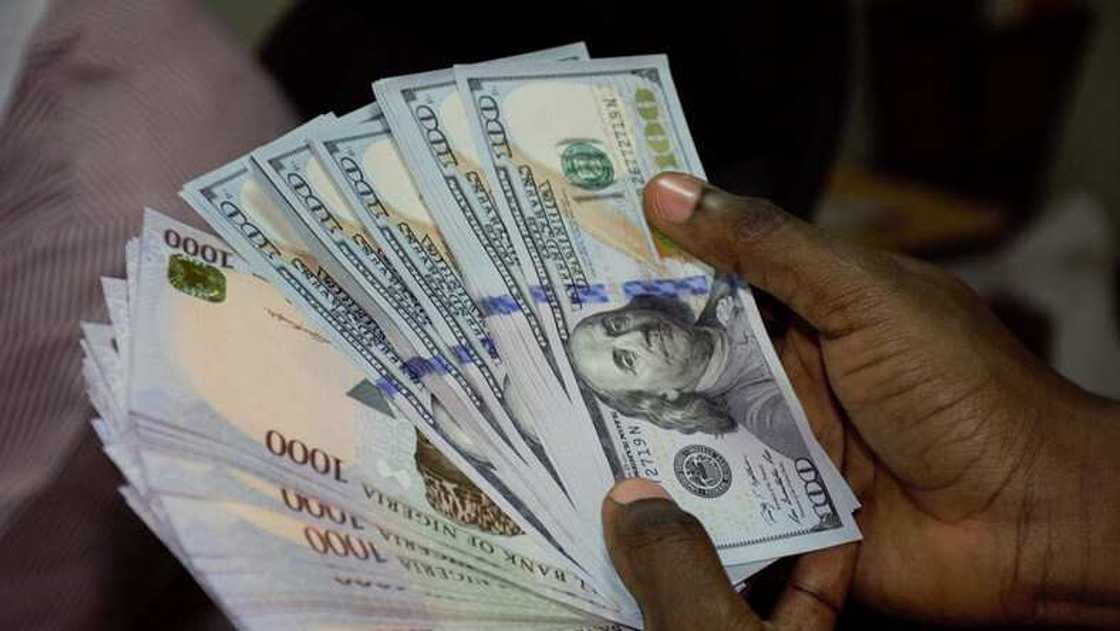Nigerian States With Highest External Debt as Analysts Predict Increase Due to Naira Devaluation
- The current devaluation of the naira has increased the debt burden of states in Nigeria
- Calculated on the current rate of N664 to a dollar, the states' external debt burden has hit about N3 trillion
- Top debtor states like Lagos, Kaduna, Cross River and Akwa Ibom have seen their debt stocks balloon
The external debt load of the 36 states and the Federal Capital Territory may increase to as high as over 40% due to the floating of the naira by the Central Bank of Nigeria (CBN).
On June 13, 2023, the external debt stock of the states was about $4.46 billion or N2.09 trillion at the exchange rate of N471 per dollar as of December 2022.

Source: UGC
According to Punch, after Nigeria devalued its currency, the debt stock climbed to N2.96 trillion at N663.04 per dollar, meaning the states will need revenue in naira to pay off their foreign loans.
By Wednesday, June 14, 2023, the apex bank asked all commercial banks to remove the rate cap on the naira at the foreign exchange market's official Investors and Exporters window, to enable its free float against the dollar and other foreign currencies.
PAY ATTENTION: Share your outstanding story with our editors! Please reach us through info@corp.legit.ng!
The CBN said it is abolishing segmentation and that all segments are now collapsed into the Investors and Exporters window.
According to FMDQ Exchange, the move led to immediate depreciation in the value of the naira, falling from N471 to a dollar to N664.04 to a dollar at the Investors and Exporters window.
However, the local currency has continued to rise and fall on the Investors' and Exporters' window since the move by the CBN.
Part of the reason given by the CBN is that it is working to unify the country's chaotic forex market in line with the directive of President Bola Tinubu during his inauguration speech on May 29, 2023.
The prevailing rates mean the external debt of the states stands as follows:
- Lagos: N828.84 billion
- Kaduna: N380.42 billion
- Edo: N173.16 billion
- Cross River: N138.92 billion
- Bauchi: 109.92 billion
- Abia: N62,51 billion
- Adamawa: N69.36 billion
- Anambra: N68.84 billion
- Bayelsa: N40.04 billion
- Benue: N19.85 billion
- Borno: N12 billion
- Delta: N39.69 billion
- Ebonyi: N38.84 billion
- Ekiti: N70. billion
- Enugu: N80.13 billion
- Gombe: N21.54 billion
- Imo: N33.88 billion
- Jigawa: N17.89 billion
- Kano: N66.75 billion
- Katsina: N35.75 billion
- Kebbi: n27.14 billion
- Kogi: N35.01 billion
- Kwara: N29.75 billion
- Nasarawa: N35.14 billion
- Niger: N45.90 billion
- Ogun: N90.35 billion
- Ondo: N60.13 billion
- Osun: N60,85 billion
- Oyo: N47.89 billion
- Plateau: N21.48 billion
- Rivers N57.77 billion
- Sokoto: N24.24 billion
- Taraba: N30.81 billion
- Yobe: N14.93 billion
- Zamfara: N19.14 billion
- FCT: N16.15 billion
Many analysts expect that the naira will stabilise around N600 to a dollar.
Analysts see naira stabilising at N600 per dollar
JP Morgan said the naira would appreciate about N600 to a dollar in the coming months.
It said:
"While it will take a few days for USD/NGN spot to settle, we fully expect an initial overshoot towards the parallel market rate of -750 or higher, after which we expect USD/NGN to settle in the high 600s over [the] coming months," the rating agency said.
The unification of Nigeria's exchange rate will increase the country's debt burden and that of the states, with many of the states allegedly owing a backlog of workers' salaries.
Nigeria’s debt stock hits N82 trillion amid CBN's naira devaluation
Legit.ng reported that Nigeria’s public debt has risen to N82 trillion from N77 trillion before the Central Bank of Nigeria (CBN) exchange rate unification, announced on Wednesday, June 14, 2023.
According to a press release by the CBN, all exchange rate windows are collapsed into the Importers and Exporters (I&E) window, showing a merger of the multiple exchange rates.
The unification has seen the naira fall to N664 per dollar and has attracted severe consequences for the nation’s economy, including a spike in public debt.
Source: Legit.ng


